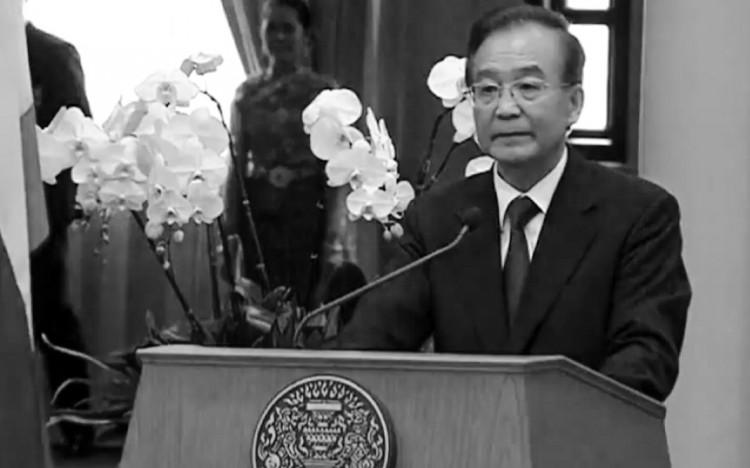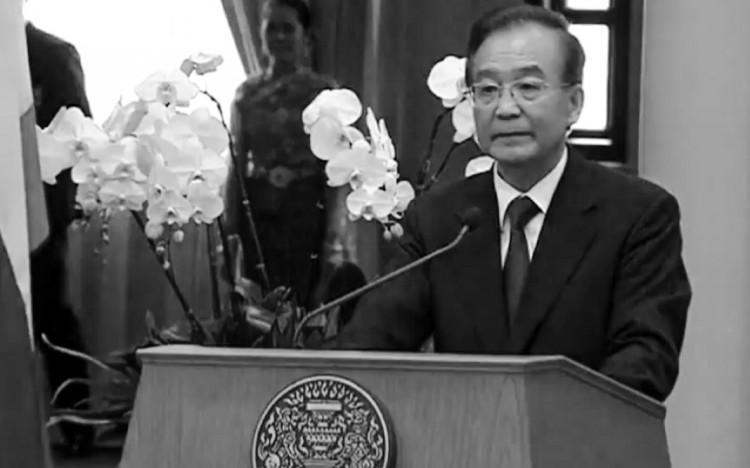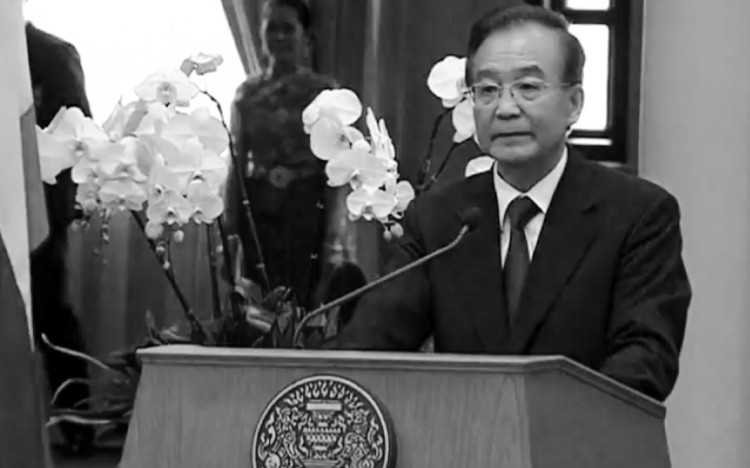Wen Jiabao, the current premier of China whose job will officially end in March of next year, gave what may be his final public statement recently, where he asked the Chinese people to “forget him,” expressed regret for not doing enough in office, and quoted a few lines of classical Chinese poetry meant to show that he is a man of integrity.
The speech was made to Chinese business leaders soon after Wen’s arrival in Thailand. He had just finished the East Asia Summit in Cambodia where he defended the Chinese Communist Party’s (CCP) territorial claims over the South China Sea.
Wen said he was “especially moved” to speak to the crowd, and praised China’s economic development of the last 30 years, before transitioning into a heavier mood. “For a country to win respect from the world, it needs not only a developed economy and powerful science and technology, but also to raise its national character and morality.”
He used the standard hedged language of Chinese leaders, about the need to “advance construction of national legal institutions,” and to “guarantee people’s freedoms and rights.”
The development of these rights and freedoms, Wen said, is a condition for China’s real national strength and further development—a view that is shared by many Western economists, who see the current state-led growth model currently coming to the end of its useful life.
“I always feel that there are many things that I haven’t completed, and many things I haven’t done well,” Wen said, before comparing himself to a poet that committed suicide.
He quoted two famous lines from “The Lament,” a famous poem whose author Wen said is his favorite poet. Qu Yuan was a righteous minister in the Warring States period (343–278 BCE) who was mistreated by his peers. Qu Yuan went into exile before writing a poetical lamentation and drowning himself in a lake.
Wen recited the lines: “But since my heart did love such purity, I'd not regret nine deaths to die,” and “I only wish I could keep myself clean and die an honest death. This kind of act was praised by ancient sages.”
He added an explanation that: “To pursue the truth, even if I die nine times, I would not be regretful. And to prove one’s innocence, even if one dies one must die sincerely and uprightly.”
Wen continued: “I’ve previously said, I’ve devoted myself to the country for over forty years. I hope people forget about me.... But I will never forget about my homeland and people.”
The premier has recently been subject to allegations that his family had enriched themselves as he gained political power.
The Chinese Internet community was divided on the remarks: some said he had done his best but been blocked by political forces outside his control; others were harsh and cynical.
The Epoch Times publishes in 35 countries and in 19 languages. Subscribe to our e-newsletter.
Click www.ept.ms/ccp-crisis to read about the most recent developments in the ongoing crisis within the Chinese communist regime. In this special topic, we provide readers with the necessary context to understand the situation. Get the RSS feed. Who are the Major Players?







